Are U OK? A Guide to Caring for Your Mental Health by Kati Morton seeks to break down the stigma and secrecy around mental health and illness, and conduct a fresh, healthy reexamination of how we approach them. This year's deaths of Kate Spade and Anthony Bourdain shocked the world. Despite seeming to "have it all" -- fame, financial success, supportive friends and families -- these great talents were suffering. Such tragedies further cement the notion that mental illness needs to be treated like the serious medical condition that it is, and not as an emotional or social problem. Morton expertly explains the distinctions between mental illness and mental health and answers the most frequently asked questions: Should I seek help? Do I need medication? What can I expect on my first therapy session? Are U OK is the perfect guide to breaking the ice on this very important urgently needed conversation. (Seal Press) -- Desiree Guerrero
(Don't) Call Me Crazy: 33 Voices Start the Conversation About Mental Health edited by Kelly Jensen is an educational, fun icebreaker to a still-too-taboo subject in our world. Geared toward kids and teens but entertaining and readable for people of all ages, this collection of essays, lists, comics, and guided meditations is the perfect way to get the family talking about mental health. The 33 featured actors, athletes, writers, and artists offer their personal insights on everything from understanding how every person's brain is wired differently, to discussion on what the word "crazy" actually means. Hint: it's not necessarily a bad thing. (Algonquin Young Readers) -- DG
Beautiful Justice: Reclaiming My Worth After Trafficking and Sexual Assault by Brooke Axtell. The activist and sexual abuse survivor told her story onstage at the 2015 Grammys, and now offers empowering insight for those struggling to move on from the trauma of abuse. At 7 years old, Axtell was raped repeatedly by her male nanny who also sold her body at "parties." This resulted in lasting feelings of worthlessness and shame, which led to a series of unhealthy and abusive relationships. Axtell was eventually able to change this toxic pattern and begin healing, and is a strong advocate for abusers to be held accountable and prosecuted in court. She also notes that, in a world where 90 percent of perpetrators don't spend a day in jail, legal justice is sadly an unlikely outcome for most victims. She adds, "Even when I've been a part of successful prosecutions, it doesn't set survivors free from the impact of the trauma." Despite these harsh realities, Axtell does provide readers with a fresh perspective and theory on the healing process that focuses on empowering survivors despite an often flawed and sexist legal system. She writes, "I am redefining justice to include and honor our well-being as survivors.... we are no longer waiting for someone else to set us free." (Seal Press) -- DG
Scared Selfless: My Journey from Abuse and Madness to Surviving and Thriving by Dr. Michelle Stevens is a personal account of the author's journey through horrific childhood sexual abuse and its resulting mental illness. Gary Lundquist, an elementary schoolteacher and respected neighbor, was also secretly a sadistic pedophile that began raping and torturing Stevens as a child. For six years, the monstrous Lundquist kept young Stevens as a sex slave, forced her into child pornography, and trafficked her in a child sex ring. This unimaginably tortured existence caused Stevens to develop DID, or Dissociative Identity Disorder (formerly often called "multiple personality disorder"). Stevens was eventually hospitalized due to the different compartmentalized personalities she developed who were, for the most part, self-destructive -- one trolled the streets for sadistic men while another was constantly suicidal, making several attempts to end her life. Amazingly, Stevens has made enormous strides in her recovery and healing, is a Ph.D.-holder in psychology, and is a happily married lesbian and mother. She hopes by sharing her story to shed light on a dark reality we can no longer ignore. (Penguin Random House) -- DG
Invisible Girls: Speaking the Truth About Sexual Abuse by Dr. Patti Feuereisen is a response to statements like that of Olympic gymnast Ally Reisman, when testifying in court against her former coach and abuser: "There is no map to show you the pathway of healing after realizing you are a survivor of sexual abuse." Feuereisen uses her 30-plus years of clinical experience working with survivors to create a guide for healing with realistic, tangible steps. She also stresses that though the #MeToo movement has been empowering and created a new sense of solidarity among women, you needn't share your story publicly in order to heal. This new fully revised version, updated to keep up with fast-changing times, is a must-read for any woman still dealing with the trauma of abuse, no matter when it occurred in their life. (Basic Books) -- DG
The Shame Factor: Heal Your Deepest Fears and Set Yourself Free by Dr. Stephan B. Poulter, a popular clinical psychologist, explores an often overlooked and misunderstood emotion: shame. In the book, Poulter discusses this complicated "primary emotional wound," and its roots in our lives. He explains the differences between shame and commonplace guilt experienced due to a particular moral misstep. Shame, he says, is a toxic emotion that can lead us into a lifetime of self-loathing and feelings of worthlessness, and the repetition of self-destructive behaviors. Through simple, guided exercises, Poulter helps readers learn to recognize the triggers in their daily lives that arouse fear, shame, and other negative emotions so they then can move toward healing, self-acceptance, self-love, confidence, and lasting happiness. (Prometheus Books) -- DG
Breaking the Ruhls: A Memoir by Larry Ruhl is the heartbreaking but ultimately inspiring account of the author's troubled childhood and adolescence and how he eventually was able to heal, reclaim his life, and now help others cope with similar traumas. While his mother's untreated mental illness kept the family walking on eggshells, Ruhl's father was secretly abusing him sexually. By his senior year, he was overwhelmingly depressed and suicidal. For decades, Ruhl was lost in this darkness and struggled with addiction, sexual confusion, and career struggles. Still, the book beautifully illustrates how, despite the traumas one can experience in life, you always possess the power to heal, transform, and thrive. (Central Recovery Press) -- DG
The Dark Eclipse by A.W. Barnes is a collection of personal essays by the author that reveal his process of grief after the suicide of his older brother, Mike. Through his writings -- as well as through sobering, real-life documentation, like the police report, death certificate, and Mike's suicide note -- Barnes attempts to come to terms with his death. Recounting much of their troubled past growing up as two gay brothers in a conservative Midwest family with eight children, Barnes recalls his frustration that their shared orientation didn't bring them closer. Their relationship with each other was just as tumultuous as the ones with their father and other siblings. Thought-provoking, heartbreaking, and deeply moving, The Dark Eclipse is recommended reading for anyone who is struggling to let go of a loved one lost to mental illness. (Rutgers University Press) -- DG
Present Through the End: A Caring Companion's Guide for Accompanying the Dying by Kristin DeLeo is thoughtful and comprehensive resource for those who are caring for someone at the end of their life. In a delicate yet straightforward tone, the book acts as a step-by-step guide to dealing with this highly emotional and difficult situation. From the moment one first hears the news that someone is dying, to their actual death and beyond, Present Through the End offers heart-felt advice on how to be authentically present and compassionate while also dealing with the myriad of emotions, fears, and extreme anxieties facing death can create. Simply put, DeLeo says she wrote the book for "those who walk alongside the dying, and who dare to be present with them." (Shambhala Publications) -- DG
Contemplative Caregiving: Finding Healing, Compassion, and Spiritual Growth Through End-of-Life Care by John Eric Baugher offers insight into the world of hospice and the life enriching experiences that can be gained by providing care to those who are dying. The author began his own hospice work in New Orleans during the early years of the AIDS crisis and addresses what he learned from the gay men he provided care too. In one passage, he describes the shame he felt after he pulled on surgical gloves to give a man living with late-stage HIV a massage. The gloves were unnecessary, and he understood that intellectually, but fear overrode his rationality. The event fractured the trusting relationship he had developed with the dying man. Baugher, whose mother was stabbed to death by a stranger, also writes of the murderers he met and interviewed about their own hospice work in prison. Pulling from Christianity and Buddhism, the modern hospice movement seeks to reaffirm the humanity of those passing away while offering volunteer caregivers transformative experiences through providing compassionate care to others. Baugher argues contemplative caregiving can be a spiritual or mindfulness practice in its own right. (Shambhala Publications) -- DG
Notes for the Everlost: A Field Guide to Grief by Kate Inglis is a partial memoir of the author's own deeply painful, personal loss, as well as a handbook for those struggling to deal with the death of loved one in their own lives. What should have been a completely joyous occasion in Inglis's life suddenly became a bittersweet tragedy. When her twin boys were born prematurely, one child survived and the other did not. In Notes for the Everlost she shares her heart-wrenching story and offers advice for other bereaved parents, or anyone dealing with a devastating loss. Inglis focuses much on the difficulties of surviving that first year of the grief process -- dealing with family, friends, guilt and isolation, and the importance of finding a like-minded community and support. Inglis's writing is unflinchingly honest yet beautiful and empathetic, and gives those left behind a gentle guide to slowly integrate the loss into their lives and begin to move forward. (Shambhala) -- DG
Big Love: The Power of Living with a Wide-Open Heart by Scott Stabile aims to prove the amazingly healing and redemptive powers of love and forgiveness, despite life's many tragedies and tribulations. At 14, Stabile's parents were murdered. Less than a decade later, his brother died from a drug overdose. Feeling lost and alone, Stabile then fell victim to a cult that would soon take total control of his life. But rather than become bitter, fearful, and angry from these horrendous experiences, Stabile only became stringer with a renewed passion to live his life from a place of love and compassion--even eventually forgiving his parents' killer. Big Love is heartbreaking, relatable, funny, and ultimately inspiring for anyone who has survived trauma and is looking for peace. (New World Library) -- DG
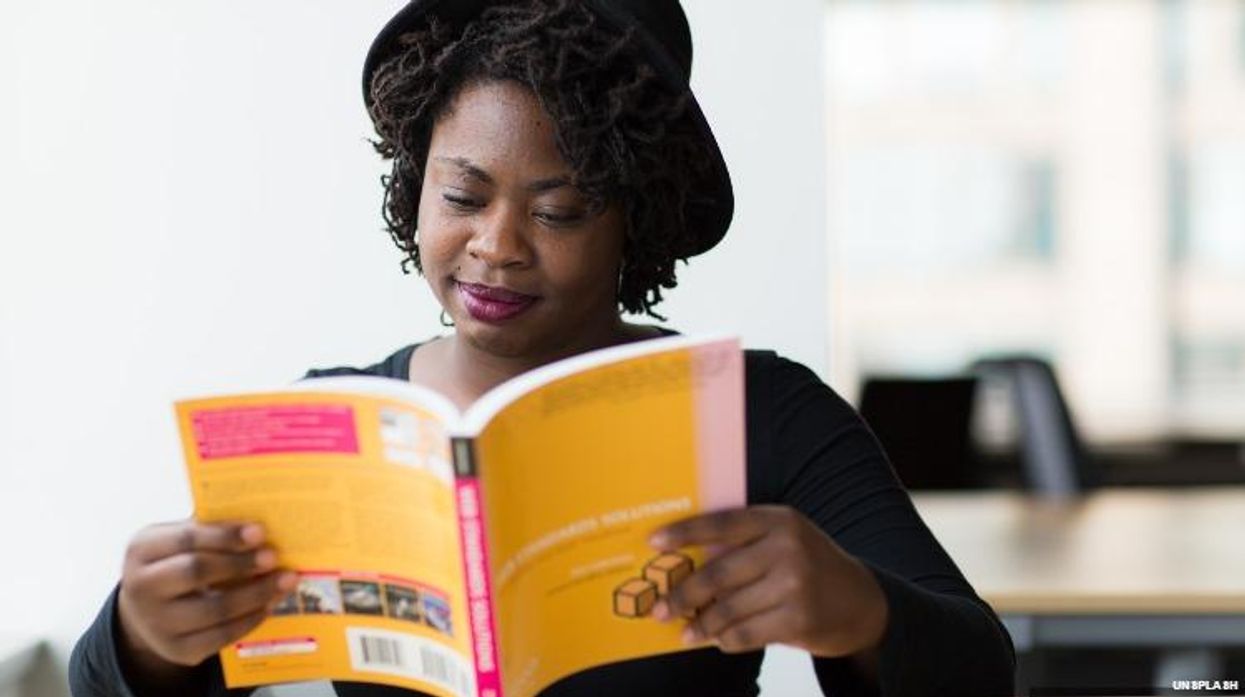
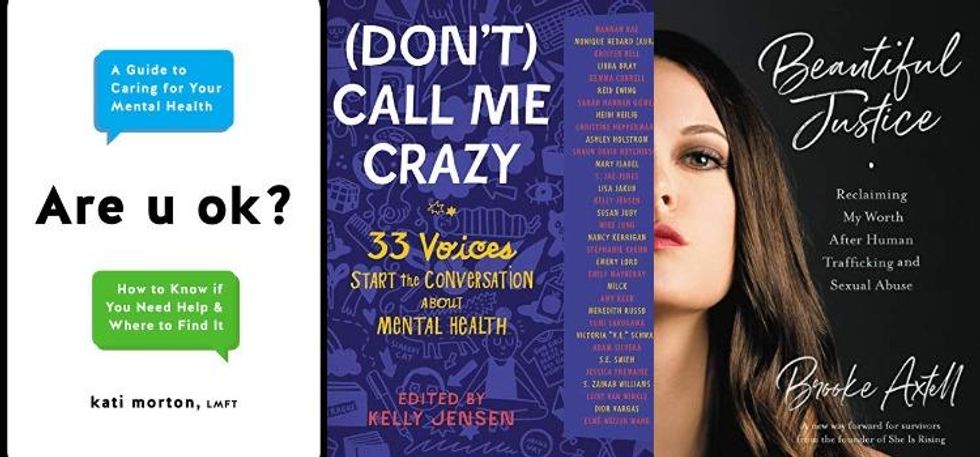
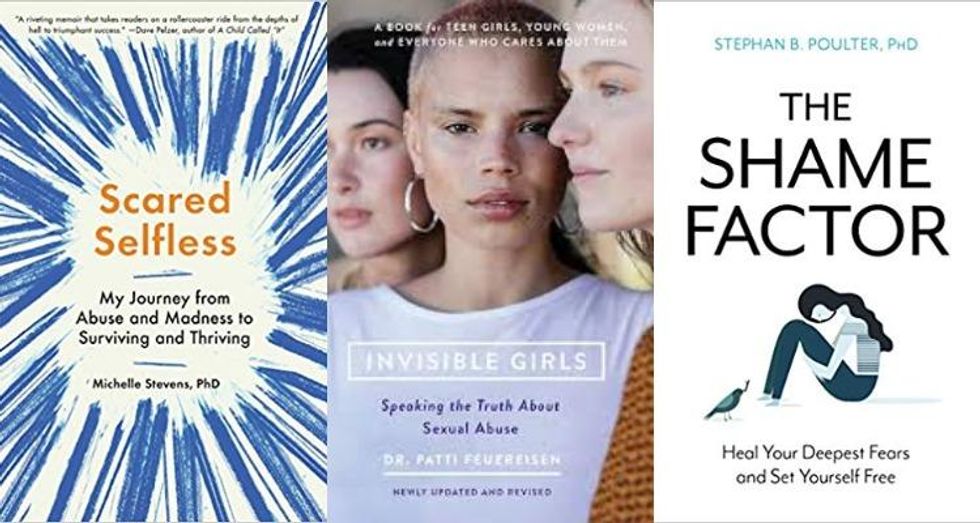
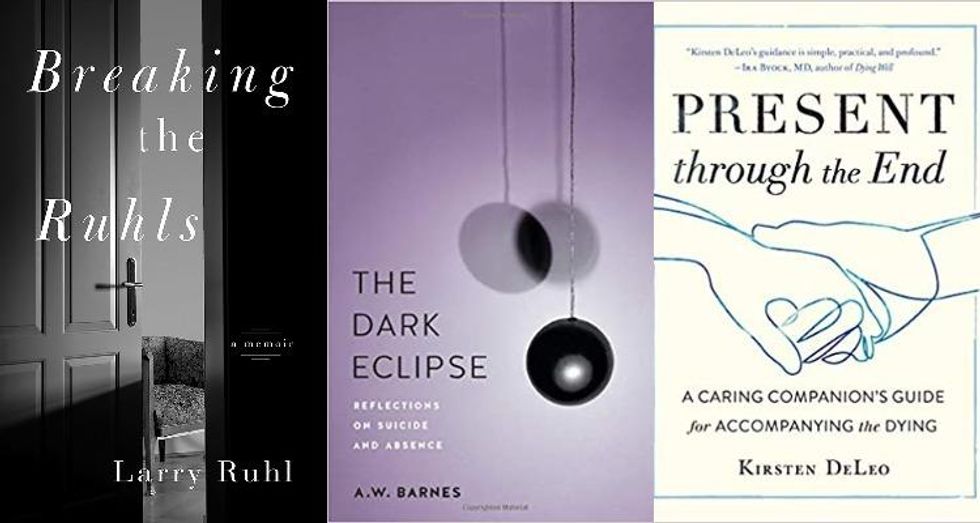
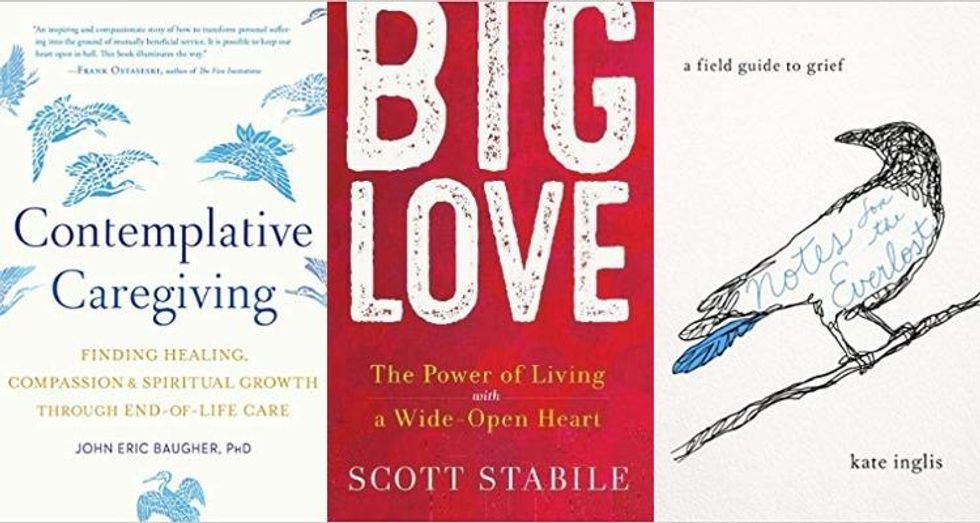






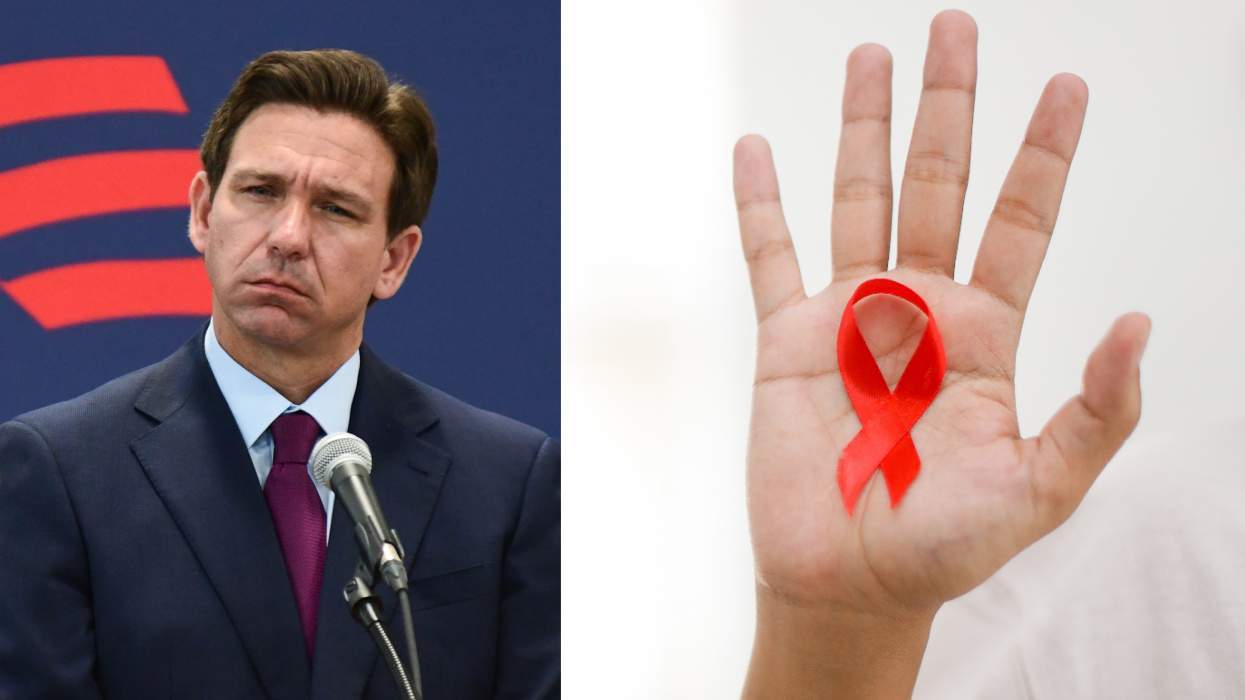
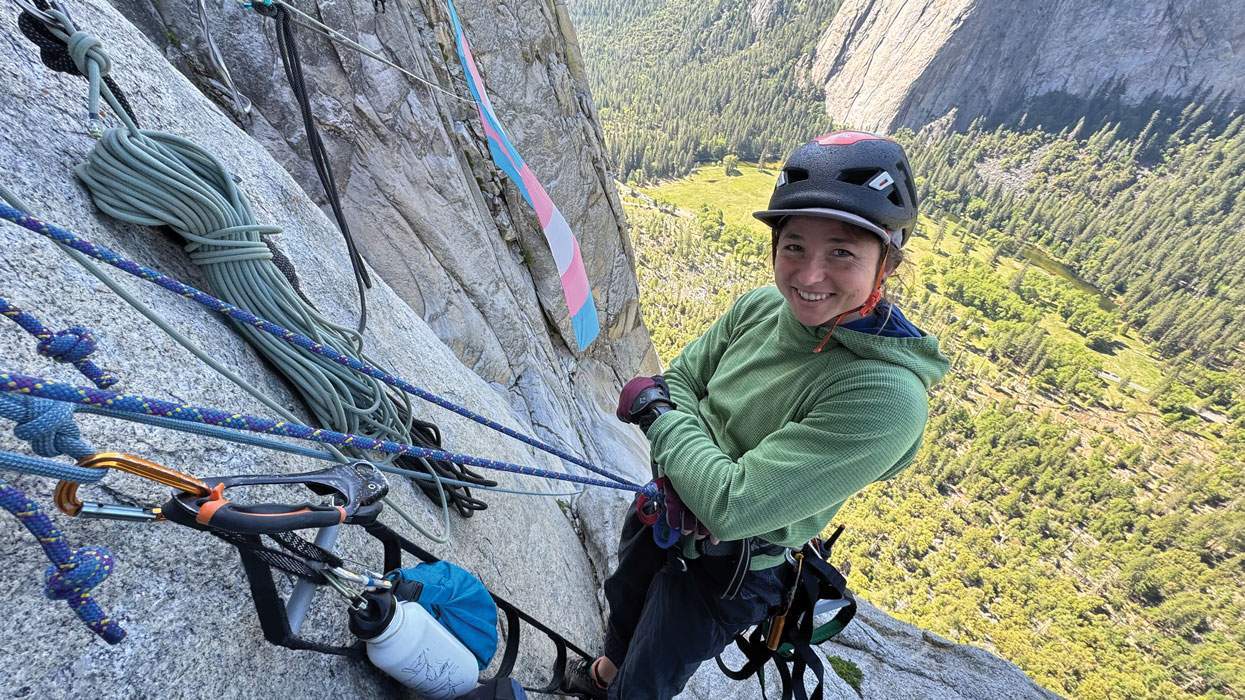
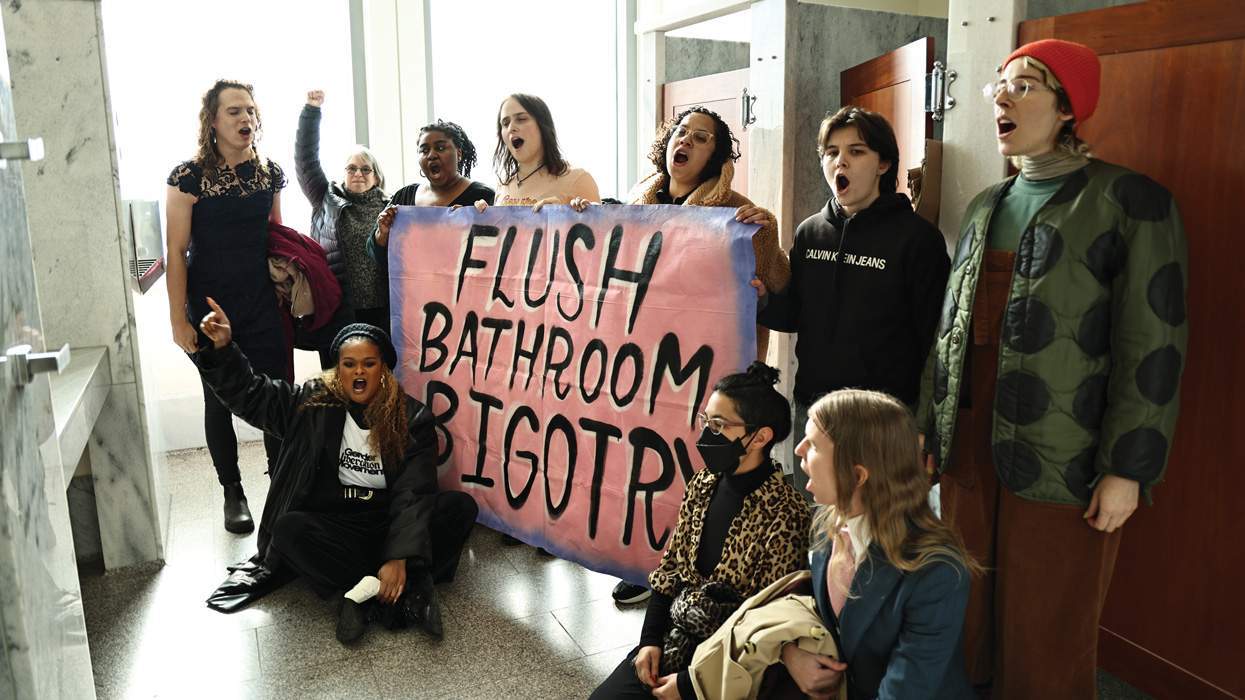





Charlie Kirk DID say stoning gay people was the 'perfect law' — and these other heinous quotes
These are some of his worst comments about LGBTQ+ people made by Charlie Kirk.